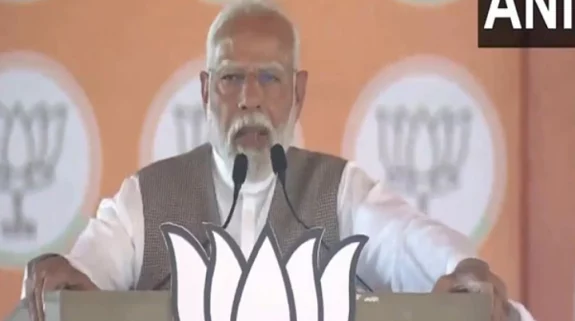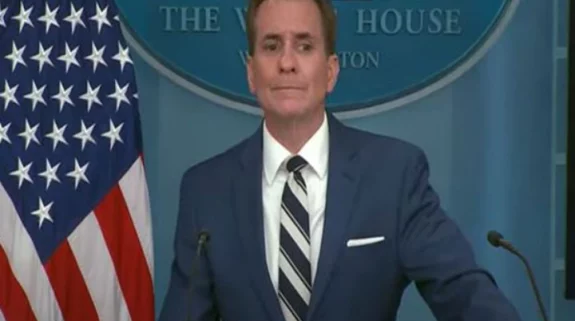Facebook’s refusal to remove or censor certain posts by Bharatiya Janata Party leaders has once again brought the issue of hate speech to the fore. It is time to scrutinize the very concept of hate speech.
Let’s begin with hate crime. Merriam-Webster defines “hate crime” as “any of various crimes (as assault or defacement of property) when motivated by hostility to the victim as a member of a group (as one based on color, creed, gender, or sexual orientation).” The US Congress describes a hate crime as “a criminal offense against a person or property motivated in whole or in part by an offender’s bias against a race, religion, disability, ethnic origin or sexual orientation.”
Hate crime, however, should not be confused with hate speech. Collins Dictionary defines “hate speech” as “speech disparaging a racial, sexual, or ethnic group or a member of such a group.” In a similar vein, Dictionary.com describes it as “speech that attacks, threatens, or insults a person or group on the basis of national origin, ethnicity, color, religion, gender, gender identity, sexual orientation, or disability.”
The notion of hate speech stands on three presumptions: first, it is directed at a collectivity or a member of a collectivity; second, the collectivity is birth-based, and that includes sexual orientation with the assumption it is innate rather than acquired; and, third, it is possible to disparage, attack, threaten, or insult a group by way of expression, be it a newspaper article, a lecture, a song, a novel, or a movie.
There are two main problems with the notion. The first one relates to the first two presumptions: overemphasis on the importance of birth-based collectivities. This is unfortunate and anachronistic, for business, commerce, and globalization have shrunk the world and brought the people of various civilizations, cultures, races, and faiths together. At a time when people are shedding their prejudices and phobias about other nationalities, races, religions, etc., politicians and intellectuals are exacerbating the differences and building new walls between different collectivities.
The second, and graver, problem with the notion of hate speech pertains to the third presumption: the very possibility of disparagement of, attack on, threat to, or insult of a group by free speech. Our contention is that it is impossible to disparage, attack, etc., a group by way of words or any other form of human expression.
One reason that it is impossible to malign a collectivity or community in a scholarly or any other fashion in this day and age is that nobody has an absolute control over knowledge and information. In ancient and medieval times, monks in Europe and Brahmins in India had a hold over almost all the institutions of imparting knowledge. In India, there was a large section of the society, called Shudras, who were doctrinally barred from receiving canonical education, the only kind of education available.
Such a situation, thankfully, does not prevail in the world today. There are so many and so varied sources of information and means of disseminating information that today it is not possible to keep spreading lies, calumny, and canards against any group—unless, of course, it is a gang of criminals.
We need to remember that within every belief system if there are fringe elements, there are also reasonable thinkers who debunk the extremist and violent doctrines—and the reasonable voices are often the dominant ones. Generally, there is regard for common decencies. For instance, former journalist and Union minister Arun Shourie, a most prominent Rightwing ideologue, slammed anti-Christian utterances of Hindu militants in 2015. Similarly, in the wake of the massacre of nine black parishioners in a Charleston church by a 21-year-old racist, Dylann Roof, all mainstream Rightists condemned the outrage.
Therefore, as the third American president, Thomas Jefferson (1801-1809), said in his First Inaugural Address, “error of opinion may be tolerated where reason is left free to combat it.”
The law should come into force only when speech immediately triggers harm, or when the speech-maker takes full responsibility of the instigation, as was the case with the son-of-the-soil Maharashtra leader Raj Thackeray. He made hateful remarks about the Hindi-speaking migrants to Maharashtra, leading to violent activities by his followers. It was a clear case of hate crime, which has not been punished till date, despite audio-visual evidence and the boastful admissions of the crimes both by the speech-makers and hooligans.
It is a topsy-turvy world that we, the people of India, live in: all efforts are made criminalize freedom of expression, whereas as blatant criminal activities go unpunished.
This brings us to the final point: in the case of speech, or any other form of expression, criminality should be linked to its effect rather than its content, more so because in such matters cure is better than prevention. The situation is similar to the regulation in the economy: ideally, regulation should be light and seek very few compliances, but fraud should be swiftly, efficaciously, and severely punished, thus instilling the fear of the law in the hearts of wrongdoers. When economic offenders know that the chances of getting caught are high, they are effectively deterred. The high probability of the law catching up with the wrongdoer works as an effective deterrence; strict compliances don’t. It is impossible to deter fraudsters by trying to preclude racket, for they are very ingenious; but it is possible to do so by ensuring punishment.
Similarly, it would be possible to bring down hate crime if the potential perpetrators know that violent consequences would result in prosecution. In a nutshell, there is no such thing as hate speech; there is only speech, which ought to be free. Sometimes, a speech does spread hatred; if the hatred immediately results in violence, it is a crime, a hate crime, and should be penalized in proportion to the severity of the crime; if not, the worst that can be said about it is that it was in bad taste, deserving condemnation and nothing more.
There is a lesson that Facebook—indeed the entire Big Tech—should draw from this thesis: it is company, not a country, so it should not bother itself about hate speech or hate crime, for hate speech doesn’t exist and tackling hate crime is the responsibility of the state.
There is also a lesson for all of us: the attack on hate speech is an attack on free speech, for anything can be construed or misconstrued as hate speech, racism, xenophobia, Islamophobia, etc. So, we must take on the self-appointed guardians of morality who claim that they are combating hate speech. They are actually curtailing freedom of expression..




















